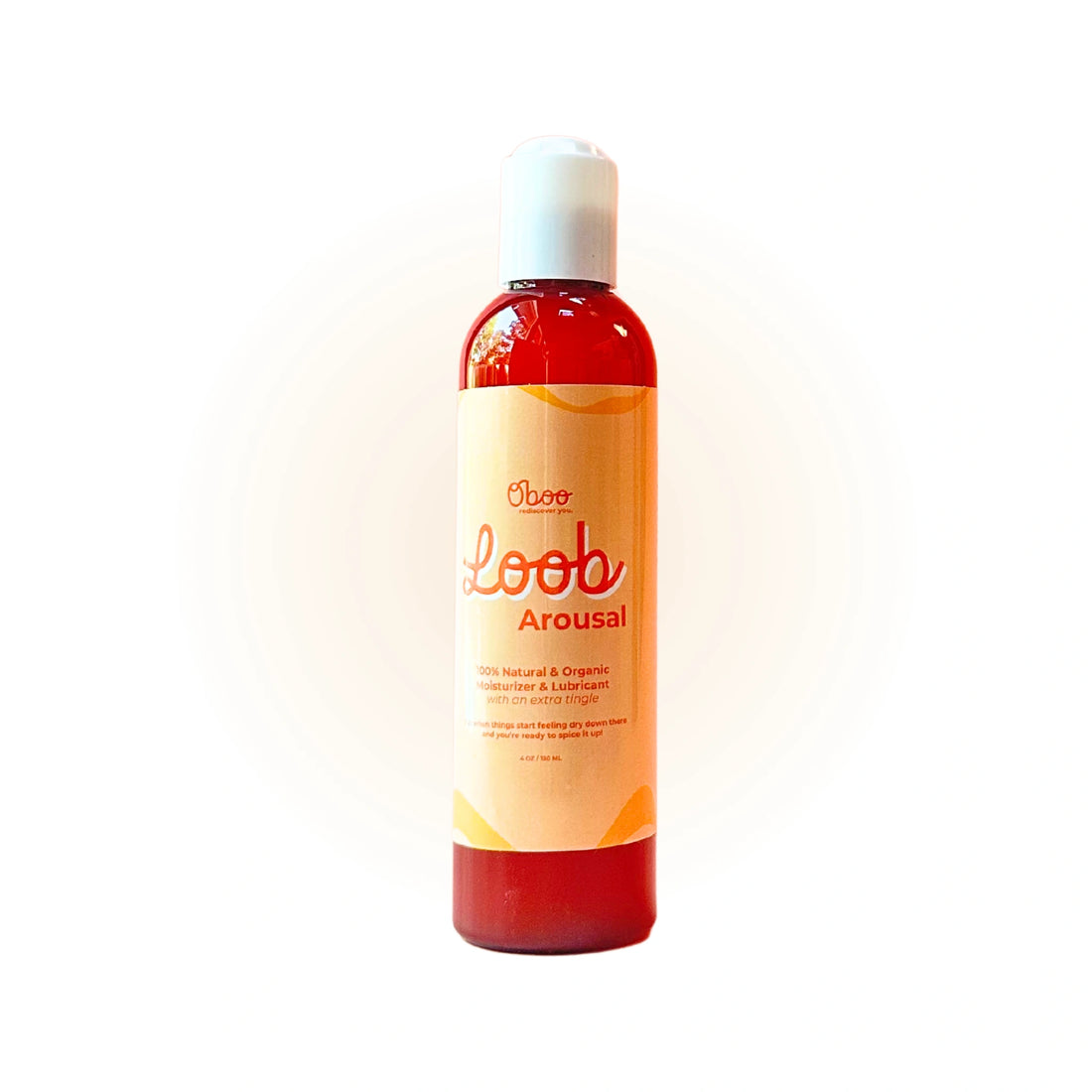Missing your inner sex-kitten? Let's get her back! Perimenopause is the tricky transitional phase leading up to menopause, often starting around your 40s. During this time, your body goes through several hormonal changes, particularly a decline in estrogen levels, which can significantly impact libido and sexual health. You might notice a drop in spontaneous sexual desire, experience vaginal dryness or feel discomfort during intercourse. It can be tough when your body doesn't feel the same. You are not alone and there are things you can do to feel better!
Addressing low libido during perimenopause isn't just about spicing up your love life (although, that part can be very fun!)—it’s crucial for your overall well-being. A healthy sex life enhances emotional intimacy, boosts mood, and even improves physical health. Ignoring these changes can lead to frustration and strain on relationships.
In this article, we’ll explore effective tips for increasing your libido during perimenopause and menopause. From diversifying your sexual routine to considering hormone therapy, we've got you covered with practical advice and actionable steps to help you navigate this phase with confidence to get your groove back!
Understanding Perimenopause and Its Effects on Libido
Perimenopause is the stage before menopause, usually starting in a woman’s 40s but sometimes beginning as early as mid-30s. It can last for a few months to several years. During this time, hormonal changes—especially decreases in estrogen levels—can have a big impact on sexual desire and function. If you are around this age and went from "bow-chicka-wow-wow" to "womp-womp" we have some tips to help you get back in the mood!
Common Sexual Health Issues During Perimenopause
Before we get into the tips, it is helpful to reflect on what is happening in your body so you can choose the right course of action for yourself. The hormonal changes during perimenopause involve unstable levels of estrogen and progesterone. Estrogen is important for keeping the vagina healthy and lubricated. When its levels drop or hormones get unbalanced, many women experience these sexual health changes:
- Decreased Sexual Desire: Lower estrogen levels can reduce libido, making it harder to feel aroused. To learn more about types of desire, check out our blog post here!
- Vaginal Dryness: Less estrogen can lead to less natural lubrication, causing discomfort or pain during sex. This is one of the most common symptoms. This not only causes discomfort during sex but also increases the risk of vaginal atrophy—a thinning and inflammation of the vaginal walls that makes sex painful.
- Mood Swings: Mood swings unfortunately feel nothing like playing on the swing set. Hormonal imbalances can contribute to mood swings, anxiety, or depression, all of which can lower sexual interest and can have an impact on your relationships.
- Hot Flashes: You are hot stuff!...literally. These sudden surges of heat can disrupt sleep and overall comfort, leading to fatigue and decreased interest in sex. The irony of getting hot and taking off clothes in bed with no desire for sex is not lost.
- Body Changes: Hormone changes can cause changes in weight and skin texture. You are a babe with wisdom and experience. But when our bodies change, sometimes it can affect how we feel about ourselves and impact sexual confidence.
- Sleep Problems: Insomnia or interrupted sleep are common during perimenopause, making you tired during the day and reducing your libido. When you are not sleeping well, you wanna go to bed, not the bedroom.
Understanding these changes is important for dealing with them effectively. By recognizing the physical shifts happening during perimenopause, you can navigate this stage better with knowledge to maintain or bring back your libido.
10 Effective Tips to Increase Your Libido During Perimenopause
Ok, girl! The part you have been waiting for! Let's get your sex drive back. We will dig into the following tips for increasing your libido during perimenopause and menopause so you can show up as that minx you know you are.
- Diversify sexual routine and explore new forms of pleasure
- Prioritize self-care activities that promote relaxation and sensual awareness
- Consider non-penetrative ways to maintain sexual satisfaction
- Seek professional help for complex libido challenges
- Address physical comforts...add lube!
- Hormone therapy
- Communicate and promote emotional connection
- Reduce stress and increase exercise for mental health
- Maintain a healthy diet
- Educate yourself...You are already doing this one. Check!
Diversifying Sexual Routine and Exploring New Forms of Pleasure
Spice things up! Routine can be a libido killer. Inject some excitement into your love life by trying new activities or techniques. Consider:
- Role-playing: Step into different characters for the night.
- Erotic literature or movies: Share fantasies that turn you on.
- Sex toys: Introduce vibrators, lubricants, or other devices to enhance pleasure.
Prioritizing Self-Care Activities That Promote Relaxation and Sensual Awareness
Your body is your temple. Treat it with kindness and attention:
- Meditation and yoga: Help manage stress and boost mood.
- Massage: Promote blood flow and relaxation.
- Mindfulness exercises: Become more attuned to your bodily sensations.
- Masturbation: By knowing what excites you, you can effectively communicate your desires to your partner, making intimacy more satisfying for both of you. Permit yourself to enjoy every nuance of sensation without guilt or shame.
- Social Connections: Nurture relationships with friends and family for emotional support and a sense of belonging.
- Personal Time: Make time for hobbies, relaxation, and activities that bring you joy and fulfillment.
Considering Alternative Non-Penetrative Ways to Maintain Sexual Satisfaction
Penetrative sex isn't the only route to intimacy. If dryness or discomfort is keeping you from sex, you can incorporate non-penetrative experiences while you work on your vaginal wellness:
- Mutual masturbation: Share in each other's pleasure without penetration.
- Sensual massages and touching: Focus on erogenous zones.
- Oral sex: Explore ways to satisfy each other without the need for intercourse.
Seeking Professional Help for Complex Libido Challenges
Sometimes, you need a little help from the pros! When faced with complex challenges related to your libido during perimenopause, seeking professional assistance can be a game-changer. Professional guidance can provide you with personalized strategies and treatments tailored to your specific needs, ensuring that you receive the most effective support. Consulting with experts allows you to address not just the physical aspects of libido loss but also the emotional and psychological dimensions that may be influencing your sexual health.
- Sex therapists: Provide tailored advice and strategies.
- Medical professionals: Offer treatments like hormone therapy or other interventions.
- Support groups: Connect with others experiencing similar issues for shared advice and encouragement.
Whether it's through therapy, medical interventions, or support groups, leveraging professional resources can empower you to navigate this transitional period with confidence and reclaim your sexual wellness. If it is available to you, ensure the professional help is a menopause expert! Many gynecologists do not specialize in menopause, so find someone with the expertise you seek.
Physical Factors: Lube Up!
Vaginal dryness can be a real buzzkill, right? But there's no need to let it ruin your fun. Different types of lubricants are here to save the day, enhancing your sexual experiences and making everything glide smoothly.
- Water-based lubricants are a popular choice. They're easy to clean up, compatible with most sex toys, and safe to use with condoms. Perfect for those spontaneous moments!
- Silicone-based lubricants offer long-lasting moisture, which is great if you're in for the long haul. They’re also waterproof, making them ideal for adventurous play in the shower or tub.
Hormone Therapy
When lube alone doesn't solve the problem, a medical-provider-perscribed treatment for menopause-related low libido may be Hormone Replacement Therapy (HRT). HRT involves taking estrogen or a combination of estrogen and progesterone to help balance those fluctuating hormones causing trouble for your sex drive. Think of it as your secret weapon against vaginal dryness and atrophy, which can make sex uncomfortable. And hey, if you’re looking to boost that sex drive, testosterone therapy might be your jam! While it’s not FDA-approved for women, several medical societies like the North American Menopause Society give it a thumbs-up. So, why not give your libido a little love?
- Estrogen therapy can relieve vaginal dryness and discomfort during sex by keeping the vagina's tissues healthy.
- Combination HRT (estrogen and progesterone) can address broader perimenopausal symptoms like hot flashes, mood swings, and yes—low sexual desire.
Remember, it's always best to talk to a healthcare provider about HRT to figure out the best plan for you. Getting some professional advice can make a big difference in bringing back that spark.
What are some non-medical treatments for low libido in menopause?
Kegel exercises: Your pelvic floor is like the unsung hero of your body, holding up the vagina, uterus, and bladder. But menopause can make these muscles feel like they've had one too many lazy days. Enter Kegel exercises! You'll give those pelvic floor muscles a serious power boost when you do them right and stick with it for a few months. The payoff? Stronger muscles and more intense orgasms. Yes, please!
Examining the Role of Psychological Well-being and Lifestyle Choices
Nurturing Intimacy Through Communication and Emotional Connection
Talking about sex can sometimes feel trickier than navigating a minefield. But guess what? It doesn't have to be! Open and honest communication with your partner about changing desires and needs can make a world of difference.
Imagine this: You're at dinner, the candles are lit, and you muster up the courage to say, "Hey, I've noticed some changes in how I feel about sex lately." Boom! You've just taken the first step toward deeper intimacy.
Communication isn't just about talking; it's also about listening. Your partner might be experiencing their own set of feelings and challenges. Creating a judgment-free zone where both of you can share openly can transform your relationship. It's not just about airing grievances; it's about celebrating wins too—like discovering a new way to connect that brings joy to both of you. This extra connection can help increase libido during perimenopause and menopause through a more responsive desire style of intimacy.
Couples Counseling: The Relationship MVP
Sometimes, despite our best efforts, we hit a wall. That's where couples counseling or therapy comes in as the unsung hero. A professional counselor can offer tools and techniques to bridge gaps in understanding and intimacy. They help unpack underlying issues that might be affecting your libido, such as stress or unresolved conflicts.
Imagine therapy as a spa day for your relationship—relaxing, rejuvenating, and oh-so-necessary. Whether it's structured sessions with specific goals or open-ended discussions to explore feelings, counseling can provide a safe space for both partners to express themselves freely.
The Magic of Mental Health: Stress Reduction Techniques & Exercise
Mental health often takes center stage when discussing libido. High-stress levels can wreak havoc on sexual desire, leaving you feeling more like a zombie than a romantic partner. Enter stress reduction techniques like meditation, deep breathing exercises, or even something as simple as taking a walk in nature.
Regular exercise isn't just for shedding extra pounds; it's also a powerful tool for boosting mental well-being. Activities like yoga or Pilates can improve flexibility and body awareness, making you feel more connected to yourself—and by extension, more connected during intimate moments.
Stress Reduction Techniques To Consider:
- Meditation: Clears the mind and improves focus.
- Deep Breathing Exercises: Reduces anxiety and promotes relaxation.
- Nature Walks: Boosts mood and provides mental clarity.
- Yoga/Pilates: Enhances body awareness and reduces tension.
Incorporating these practices into your daily routine can lead to significant improvements in both mental health and libido.
Exercise not only releases endorphins (the happy hormone) but also increases blood flow throughout the body—including those all-important erogenous zones. So next time you're feeling down, try hitting the gym or rolling out that yoga mat.
When mental health is prioritized alongside physical well-being, you're setting the stage for improved sexual intimacy. Whether through solo activities like meditation or couple-centric approaches like joint exercise routines, these changes can lead to a more fulfilling sexual relationship during perimenopause.
Your journey through perimenopause doesn't have to be solitary or stressful—embracing psychological well-being and positive lifestyle choices can make it an empowering experience filled with opportunities for growth and deeper connection.
Eat What Makes You Feel SEXY!
Eating a balanced diet rich in vitamins, minerals, and antioxidants can positively impact sexual health. Foods high in omega-3 fatty acids, such as salmon and flaxseeds, along with fruits like berries and vegetables like spinach, can enhance blood flow and improve sexual function. Avoid excessive consumption of alcohol and caffeine as they can negatively affect libido.
Incorporating foods that boost nitric oxide levels, such as beets and leafy greens, can also help improve circulation to sexual organs. Nuts and seeds provide essential fatty acids and L-arginine, which support healthy blood vessels. Dark chocolate, known for its flavonoid content, can elevate mood by increasing serotonin levels. Feel free to melt it and eat it off your partner to activate 2 tips in one!
Hydration is another crucial aspect; drinking plenty of water ensures that your body functions optimally, including maintaining vaginal lubrication. To get extra frisky, consider including aphrodisiac foods like oysters or avocados to add an extra spark to your meals. Hate oysters? try Oboo's In the Mood Libido Drops to get the benefits in one drop! Remember that a nutrient-dense diet boosts overall health and helps maintain a vibrant libido during perimenopause.
Educating Yourself: Understanding Sexual Health Issues Related to Perimenopause
Knowledge is power, especially when it comes to navigating the changes in your body during perimenopause. Staying informed about the physiological aspects of this transition helps you advocate for yourself in healthcare discussions.
Reputable resources for learning about sexual wellness in midlife include:
- The North American Menopause Society (NAMS)
- Mayo Clinic
- Our own blog archives
Understanding how your mental health impacts sexual desire is crucial. Stress reduction techniques like meditation and yoga can significantly support a healthy libido by lowering anxiety levels. Regular physical exercise not only boosts overall well-being but also positively affects sexual function. Imagine trading stress for endorphins – a win-win!
Counseling can be a game-changer. Professional help provides strategies for improving sexual intimacy and handling changes. It’s not just about talking; it's about finding solutions tailored to you.
When you’re armed with knowledge and proactive steps, you’re better equipped to enjoy this journey with confidence and joy.
You got this...
Rediscovering one's sexuality during perimenopause can be empowering and transformative. This phase is not just about the challenges; it's an opportunity to explore new aspects of intimacy, deepen emotional connections, and prioritize self-care. You have the power to navigate this transition with confidence and curiosity.
Reviving libido during perimenopause involves:
- Understanding your body
- Communicating openly with your partner
- Seeking professional guidance when needed
It's important to remember that pleasure and intimacy are still very much possible during this time.
Feel like spicing things up? Check out Oboo products for a little extra support in enhancing those intimate moments. Whether you're trying out new lubricants or seeking innovative ways to connect with your partner, Oboo has got you covered!
Like this article? Sign up below to get more like this delivered straight to your inbox! Want our take on something specific? Email us at hi@oboo.love.
A friendly reminder: This blog is here to share love and knowledge, not to replace your doc! We are not medical providers or experts. For any health questions or medical concerns, always chat with a qualified healthcare professional. Stay fabulous!








